Compounds are formed by combining different elements from "summary" of Chemistry by Russell Kuhtz
Compounds are the result of elements coming together in specific combinations. These combinations involve the sharing or transfer of electrons between the atoms of the elements involved. When elements combine to form compounds, they do so in fixed ratios determined by the properties of the individual elements. For example, when sodium (Na) and chlorine (Cl) combine, they form sodium chloride (NaCl) in a 1:1 ratio. This means that for every sodium atom, there is one chlorine atom present in the compound. The resulting compound, sodium chloride, has different properties from its constituent elements. Sodium chloride is a white crystalline solid that is commonly known as table salt, which we use in our daily lives. The process of elements combining to form compounds is governed by the principles of chemical bonding. There are two main types of chemical bonds: ionic bonds and covalent bonds. Ionic bonds form when electrons are transferred from one element to another, resulting in the formation of positively and negatively charged ions that are attracted to each other. Covalent bonds form when electrons are shared between elements, creating a strong bond that holds the atoms together. Compounds can be simple, such as water (H2O) or carbon dioxide (CO2), or more complex, such as proteins or DNA. Regardless of their complexity, compounds are always made up of elements in specific combinations and ratios. The properties of compounds are different from those of the elements that make them up, and compounds can have unique characteristics and uses based on their composition.- Compounds are formed by elements combining in specific ratios through the process of chemical bonding. This results in the creation of new substances with properties distinct from the elements that make them up. The study of compounds and their formations is essential in understanding the diversity and complexity of the world around us.
Similar Posts
Complexity of human nature
Human nature is a labyrinthine maze, intricate and multifaceted, constantly surprising us with its profound depths and contradi...

Embracing change leads to personal evolution
The notion that change is an inevitable part of life is one that many find difficult to accept. However, in "Lessons in Chemist...
Salt has economic implications at both local and global levels
Salt has played a significant role in shaping economies both locally and globally throughout history. Its importance can be see...
The history of chemistry is interconnected with world events
Throughout history, the evolution of chemistry has been intimately tied to major world events. From wars to political revolutio...
The lanthanides and actinides belong to the inner transition metals
The lanthanides and actinides are two sets of elements that are placed separately at the bottom of the periodic table, beneath ...
Thermodynamics deals with energy changes in chemical reactions
Thermodynamics is a branch of chemistry that focuses on energy changes in chemical reactions. In other words, it deals with how...
Ionic bonds involve the transfer of electrons between atoms
Ionic bonds involve the transfer of electrons between atoms. When atoms form ionic bonds, one atom loses electrons while the ot...
Buffers resist changes in pH by accepting or donating protons
Buffers play a crucial role in maintaining the pH of a solution by accepting or donating protons when necessary. When an acid o...

